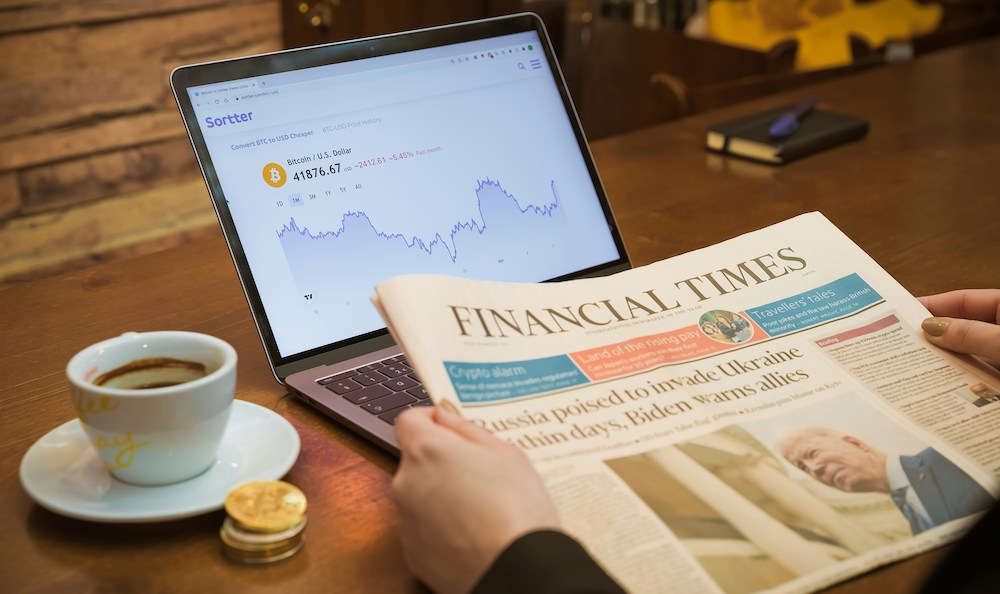Data regulations don’t tend to be viewed with much excitement by the media industry. They’re generally seen as necessary but restrictive at best, or outright counterproductive and disruptive to business at worst.
But within these regulations, there are serious business opportunities. After all data laws exist, in theory at least, to serve consumers with better products – ones where they have more control over their personal data. So it stands to reason that tools which help media companies comply with these laws can also help foster new, innovative, and useful products.
One company leaning into this opportunity is Inrupt, a data business co-founded by Tim Berners-Lee, best known as the creator of the World Wide Web. Inrupt creates products based around Solid, an open source web decentralisation project also led by Berners-Lee, which seeks to change the ways data is stored and shared on the internet.
These products give users the ability to see what data different companies hold on them and adjust permissions over that data. It also helps with data portability – the ability to move data from one place to another.
Since these sorts of capabilities are required by many of the world’s biggest pieces of privacy legislation, the technology has obvious uses from a compliance perspective. But Inrupt says use cases go far beyond legal compliance: it opens up entirely new ways for media companies to collaborate, enables content personalisation at scales not yet possible, and could play a key role in the metaverse.
Putting privacy on solid ground
Max Leonard, principal technologist at Inrupt, says Inrupt’s Enterprise Solid Server rethinks the relationship between digital applications and the data they collect and use.
“Most services that exist online today are big digital services which have applications and data sources which power those applications – and those things tend to be coupled together,” said Leonard. “If you want to bring along another application to read the same chunk of data, or move data between applications, that’s quite difficult. You need to start building APIs and connect it to those API’s. And that all gets more complicated when you connect up more and more data stores.”
A lot of existing data architecture used by big businesses was also built before modern privacy regulation was written. So it isn’t really designed to handle consent-based sharing, modification, and deletion of data.
As such, it’s very difficult for companies to move data between different applications internally, let alone share it with another business. And consented data sharing isn’t built into the process.
“What Solid does is it flips the equation around,” says Leonard. “So rather than having an application and a data store coupled together, you separate them. You have a standard interface, which is the Solid protocol, which allows any application to write to any data store, independent of where it’s hosted. And it’s all done via consent.”
In this system, individuals are given data ‘pods’, where data about them is held. User can see the data held in these pods, and control who is able to access it, as they wish. And any companies which have the right permissions can write and read data in that pod.
A number of businesses are already working with Inrupt to develop applications for this technology. And while the technology can apply to businesses in a range of sectors, media companies are getting involved, with one of the most recent being the BBC.
The BBC created a watch party feature for iPlayer, where different users could watch the same show together at the same time. Data from those watch parties – including viewing data and telemetry data (for example, data on what users clicked on, when they clicked pause, when they clicked stop) – was stored in individual data pods created by Inrupt for each user. Users could then view that data, edit it, delete it, and decide if they wanted to share it back with the BBC.
The feature was run as an experiment, designed to test whether the technology worked, and how users would interact with it. While the technology worked as planned, most users didn’t seem too concerned with the data side of it: “there was only a small number of people who were really bothered by it, but they went into quite a lot of detail,” said Inrupt’s Max Leonard. “But most people just wanted to get on and use the thing”.
That’s not really that surprising – while data privacy is important, the proportion of people who engage highly with detailed privacy features across most products tends to be quite low. But with the core technology in place, companies like the BBC can build more exciting tools (from a user’s point of view) on top of it.
“The analogy I usually use is end-to-end encryption in things like WhatsApp,” said Leonard. “End-to-end encryption by itself isn’t something people get that excited about. But it works in the background for a lot of services, and as a result everyone’s better off and safer, and they begin to get better services which are enabled by the technology as a result.”
Into the metaverse
A lot of the more interesting use cases are likely to come from the data portability enabled by Solid.
In a world where sharing data between different companies in a consented manner becomes much easier, there will be lots of opportunities for better personalisation of digital services.
For a start, there are use cases for core accessibility functions. For example if a media company like the BBC had consented access to a user’s relevant health data, it could know by default that a specific user needs subtitles displayed by default because they’re hard of hearing. So too would any other media company which has permissioned access to that data pod.
There are also opportunities around content personalisation. By pooling data on users’ viewing habits, broadcasters could develop more accurate algorithms for recommending TV shows and films to their users. And this wouldn’t just be limited to cooperation between broadcasters. “Imagine if the BBC could access my Spotify data with my consent, they could use that data to serve me relevant content,” said Leonard. “They might see that I like Dr Dre, and then serve me up content relating to Dr Dre and 90s rap music”.
And there’s an advertising angle too. By pooling their demographic and behavioural data, media companies could have a much stronger data proposition to offer advertisers, helping them to better compete with the data rich tech giants.
Looking even further down the line, the tech could play a key role in the emerging metaverse, where data portability is generally held to be a core principle.
“Looking at video games and the metaverse, you can really see people wanting to move things between worlds, for example bringing skins and weapons from one game to another,” said Leonard. “We’re going to need standards to be able to do that. People look at blockchains as a solution, but they have problems alongside their benefits. Solid is already a W3C standard, it already works with the existing web. It looks like an obvious technology to me for solving those problems.”
Play nice, or else
Of course technology and privacy laws haven’t been the only blocks to widespread data sharing in the media world. While many media businesses would undoubtedly love to get their hands on data owned by their rivals, many have historically been less willing to share their own.
But the pressure applied by the large tech companies to many traditional media businesses means attitudes are changing. And if enough media companies – say, most of the world’s traditional broadcasters – got on board and start developing new products based on this technology, that might pressure the tech giants to get involved.
If they don’t jump aboard willingly, they may well be forced. While data portability is already required in many markets by law, companies aren’t necessarily required to share it in a way that makes it particularly usable by other companies. But that might change. Leonard pointed to recent pieces of legislation in different sectors which are mandating open access to data.
“IoT car data is a good example,” he said. “In the next couple of years, car manufacturers will be required in Europe to open up the data being generated by their cars for anyone to access. That thinking is going to apply everywhere, and it won’t be good enough to just make data available as a PDF or a completely unusable XML file.”
But Leonard says many will see the opportunity and get involved before this point. Many already are. Solid technology is seeing some impressive deployments already: Inrupt is working with the Flanders government in Belgium to give all six million of Flanders’ citizens a data pod, and more and more services are plugging into these data pods.
“These ecosystems are already taking shape,” said Leonard. “When we talk about this technology, people always assume it’s ten years off, but that’s not the case. If we’re having this conversation in two years time, we might be talking about all the existing media networks using Solid, asking how they’re doing in comparison to each other rather than looking at whether they might be interested in using it.”




